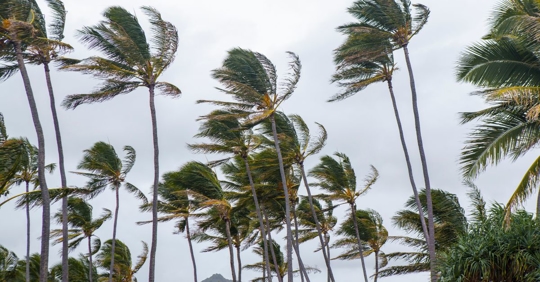Winter in Florida might not bring snow or freezing temperatures, but that doesn’t mean your home’s electrical system is immune to seasonal challenges. The state’s mild temperatures and high humidity can still create unique conditions that stress electrical components, affect efficiency, and increase maintenance needs. Understanding how these environmental factors interact with your system can help you prepare your home for a safe, efficient winter season.
Mild Temperatures and High Humidity
Florida’s winter climate ranges from the mid-50s to the high-70s, offering relief from summer heat but presenting challenges of its own. Instead of battling extreme cold, Florida homeowners face consistent humidity and salty air that can take a toll on electrical systems.
Common issues caused by humidity and salt exposure include:
- Corrosion on wiring and connectors
- Rusting of metal components in outlets or breaker boxes
- Reduced electrical conductivity and increased system inefficiency
Even well-sealed systems can experience condensation buildup inside outlets, switches, or circuit breakers, leading to short circuits or gradual deterioration. To minimize damage, consider these preventive strategies:
- Use dehumidifiers in electrical rooms or enclosed spaces
- Choose corrosion-resistant materials for new installations
- Regularly inspect outdoor connections for moisture or rust
By staying ahead of these issues, homeowners can ensure their systems remain reliable through Florida’s humid winters.
Increased Weather Variability
Florida’s winter weather can be unpredictable, with sudden cold snaps followed by warm days. These fluctuations cause residents to switch between heating and cooling, placing added strain on HVAC systems and household electrical loads.
This back-and-forth demand can:
- Stress outdoor electrical components
- Overload circuits and cause temporary outages
- Increase wear on HVAC systems and wiring
To prepare your home for these shifts, consider installing an energy management system. These systems help balance electrical loads and maintain steady power usage, reducing strain and preventing unexpected outages during weather changes.
HVAC Systems and Energy Consumption
While Florida’s winters are mild, residents still rely on their HVAC systems to stay comfortable. Heat pumps, in particular, see frequent use due to their efficiency in moderate temperatures—but rapid temperature changes can cause them to work harder than expected.
During these months, energy consumption may rise due to:
- Increased heating demands during cold snaps
- Greater indoor activity, such as cooking and entertainment
- Aging HVAC systems struggling to maintain efficiency
To manage this demand:
- Schedule regular maintenance for your HVAC system
- Upgrade outdated wiring or panels to handle increased loads
- Monitor your home’s energy use with smart thermostats or meters
Taking these steps keeps your system efficient and reduces the risk of mid-season electrical repairs.
Moisture-Related Electrical Risks
Even in winter, Florida’s high humidity can pose serious risks to electrical systems. Moisture infiltration can lead to corrosion, short circuits, or even electrical fires if left unchecked.
Key areas vulnerable to moisture include:
- Circuit breakers and main electrical panels
- Outdoor outlets and fixtures
- Wall switches and wiring near windows or doors
Preventive maintenance is the best defense. Homeowners should:
- Ensure outdoor outlets are properly sealed and insulated
- Use moisture-resistant materials where possible
- Install quality dehumidifiers to control indoor humidity
By taking these steps, you can protect your home from long-term electrical damage and reduce safety hazards during the damp winter months.
Regular System Inspections
A thorough electrical inspection is one of the simplest ways to prepare your home for winter. Routine checks help identify issues early and keep systems operating efficiently.
Create a basic inspection checklist that includes:
- Examining circuit breakers and main panels
- Checking HVAC units for electrical strain
- Tightening connections and replacing worn components
Beyond DIY maintenance, scheduling a professional inspection provides peace of mind. Licensed electricians can identify hidden problems, verify code compliance, and recommend upgrades that improve reliability. Establishing a seasonal inspection routine can prevent costly breakdowns and ensure safe performance all winter long.
Surge Protection and Winter Safety Measures
Florida’s unpredictable winter weather can still bring power fluctuations and grid strain. Installing surge protection is essential for protecting your home and devices against sudden electrical spikes.
Whole-house surge protectors safeguard your entire electrical system, while individual surge strips can be used for sensitive electronics. In addition, planning for power interruptions ensures your household remains safe and comfortable. Keep emergency items on hand, such as:
- Battery backups and flashlights
- Portable generators or power banks
- Clear safety procedures for handling outages
Having a plan in place allows you to navigate unexpected disruptions confidently while maintaining essential power for your home.
Utilizing Smart Technology
Smart home technology has become an effective way to manage Florida’s unique winter energy demands. Devices like smart thermostats automatically adjust to temperature fluctuations, improving comfort and cutting energy waste.
Additional smart systems can enhance efficiency through:
- Real-time energy monitoring and reporting
- Automated lighting and appliance control
- Integration with renewable energy sources, like solar panels
These technologies empower homeowners to fine-tune their energy use and maintain consistent efficiency throughout the season.
Sustainable Energy Practices
For Florida homeowners, sustainability and energy efficiency go hand-in-hand. With abundant sunlight even in winter, solar energy remains a powerful option for reducing costs and environmental impact.
Other energy-efficient practices include:
- Switching to LED lighting
- Using Energy Star-rated appliances
- Performing regular HVAC maintenance
These small but impactful habits help extend the life of your electrical system while lowering energy bills. By prioritizing sustainable choices, you can stay comfortable all
Turn to Small Jobs Electric® Inc This Winter
At Small Jobs Electric® Inc, we’re dedicated to helping Florida homeowners optimize their electrical systems for safety, reliability, and efficiency, offering reliable, professional service that puts you first. Whether you need a full system inspection, surge protection installation, or guidance on sustainable energy upgrades, our team is ready to help.
To learn more, call Small Jobs Electric® Inc now at (813) 303-0052. You can also reach out to us online.

